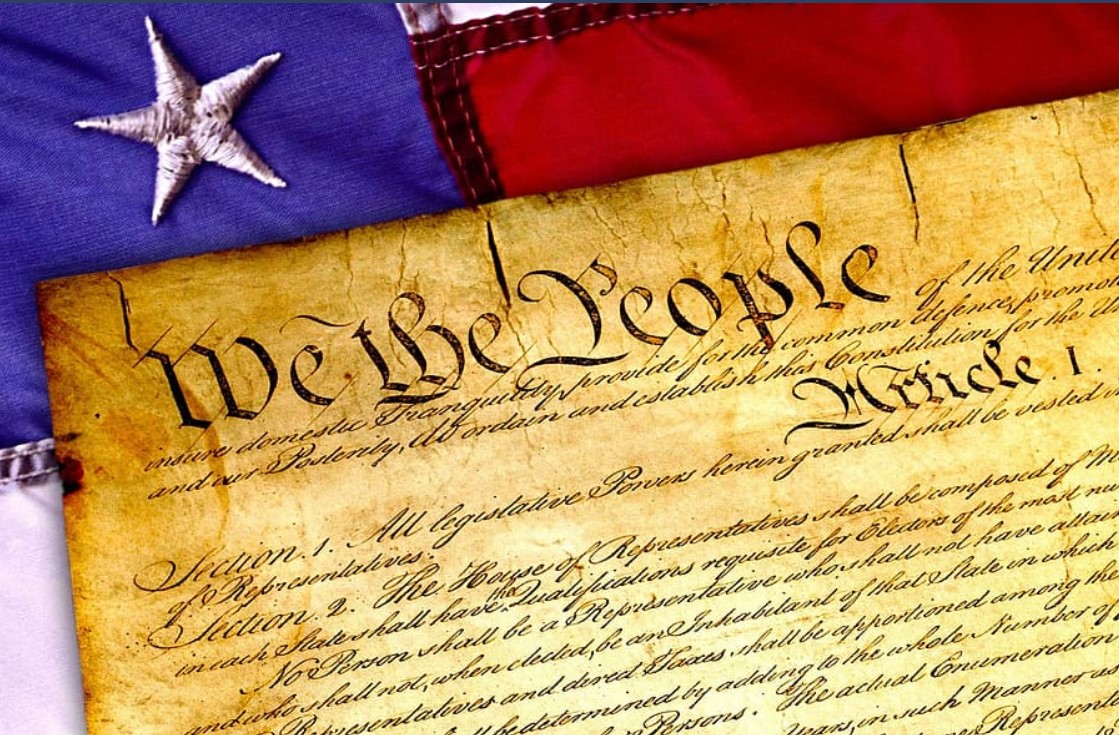

Pxfuel
Project 2025 is about expanding freedom, and localizing government choice as much as possible.Over the past few months, a lot of ink has been spilled and words spoken about Project 2025 and former President Donald Trump’s support for it. Almost all of what’s been written and said have been lies from biased writers and pundits.
Commentators have alternately, and sometimes in the same story, called it “fascist,” anti-democratic,” a plan to “destroy the U.S. system of checks and balances,” and perhaps cringiest of all, “a Christo-Fascist plan to create a theocracy.”
In actuality, Project 2025 is none of these things, except in the unhinged minds of the labelers. In fact, it is the very opposite.
Project 2025 strongly supports the checks and balances in the Constitution, which have been significantly reduced since it was written. Contrary to the claim commonly made by Project 2025’s detractors and defenders alike, the United States is not a democracy; it is a constitutional republic with limited democratic elements. Project 2025 defends the constraints placed on the federal government enshrined in the Constitution, restraints placed upon both presidential (executive) authority and democratic majority rule, which in contrast to the world we live in today have virtually unlimited and unchecked power into the very recesses of individual’s lives.
Project 2025 recognizes that the federal government, as designed by the Founders, has limited powers, with most power and decision making explicitly reserved to the states and the people therein. Our Founders were all about individual freedom and responsibility and self-rule, not rule by demagogues in the guise of democratic populists or paternalistic father/mother figures. As such, the role of democracy is present but circumscribed and lies solely in the domain of the elected legislature. In the Constitution, the executive branch, aside from war powers, existed solely to execute and carry out the law as written by Congress, not as decided by executive order.
So, Project 2025 is not anti-democratic, rather it is pro-democracy within its proper constitutional limits. Nor is it fascist, which for me is the most confused and easily falsified claim made about Project 2025. Fascism and socialism are all about expanding the power of government over, and most often against, the will and well-being of individuals. Fascism, like socialism, demands ever bigger government with ever more power over society. What Project 2025 proposes is just the opposite, a smaller government with less of a dictatorial role in individuals’ lives. It is about freeing people to make decisions about how to live for themselves, regardless of what their neighbors or rulers might think is right, wise, or best for society or them. Project 2025 does not place society or the government and its “needs” above the desires and needs of individuals and the families and communities they voluntarily create and join. To be clear, a program can’t be fascist if it limits the power of government to a minimal role in peoples’ lives — which Project 2025 does.
Having discussed what Project 2025 is not, lets touch on what it is or proposes in a couple of areas, to prove the point.
<img alt captext="Pxfuel” class=”post-image-right” src=”https://conservativenewsbriefing.com/wp-content/uploads/2024/11/project-2025-promotes-freedom.jpg” width=”450″>The Constitution does not delegate to the federal government a role in education — that was left to the states and the people. Yet, in 1979, with the creation of the U.S. Department of Education (DoE), the federal government arrogated to itself a role in dictating and incentivizing with dollars kids’ education.
Staffed with thousands of bureaucrats, it is unclear that the DoE has done anything at all to improve the education of America’s kids. Since its creation, literacy, science, and math scores have plummeted as concerns about gender, “social justice,” “climate justice,” and other controversial, nonessential and even nonsensical topics have taken up more and more classroom time. Of course, this reduces the time spent helping kids learn and become competent in reading, writing, arithmetic, history (and I don’t mean woke revisionist history through the lens of people who claim the United States is an institutionally racist society), and how to conduct science.
As an example of the latter point, the teaching of the scientific method — hypothesis and theory development, experimentation, testing, and verification — is no longer contained in the recently revised national next generation science standards, having been replaced by consensus. Equity and comity have replaced competence, excellence and the pursuit of knowledge and truth, as the core of the scientific discipline. Under federal guidance, incentivized by funding and directives, school systems across the country now have almost as many administrators and non-teaching staff as teachers — none of which benefits or improves the education of students.
Project 2025 would reverse this. The country did without a DoE for 190 years and the education of students would be improved if it did so again. At the state level, Project 2025 endorses education dollars following the kids so parents can choose what schools, public or private, they think best suits their children’s needs and educational advancement. This would set up a competition for excellence in schools wishing to attract students and the education dollars they come with. That’s not anti-democratic, that’s anti-bureaucratic. Empowering parents is pro-choice, the very opposite of bureaucratic, administrative fascism.
Concerning the environment, Project 2025 would end Environmental Protection Agency (EPA) and Department of Energy mission creep by specifically limiting those agencies to carry out only those programs and missions specifically delegated by Congress. No more appliance and car diktats based on reducing carbon dioxide emissions, because fighting climate change and controlling energy use to limit CO2 emissions is nowhere mentioned in any law Congress has passed. This is pro-democracy over unaccountable bureaucracy.
Congress would have the final say over whether administrative agencies have interpreted the laws they’ve written correctly, and if Congress says an agency has overstepped its bounds, a congressional resolution of disapproval would end the debate. Congress’ interpretation of what it means when it writes a law would surpass agencies or the executive’s views of what a law allows, or more accurately, what agency bureaucrats or the president believe the law should have required. That’s pro-democracy! Those democratically elected to write laws should have the final say on what those laws actually say and intend, rather than unaccountable bureaucrats.
Project 2025 would keep energy affordable and reliable while allowing individuals to choose their vehicles and appliances, sans government interference. Our Founders never would have countenanced the federal government dictating peoples’ modes of transportation or the types of technologies they use to cook their meals, store their food, wash their clothes, or communicate with each other, or access knowledge and express points of view, to take just a few examples.
Also, under Project 2025, the science used by federal agencies to justify the rules and restrictions they develop could no longer be kept secret. As with all good science, it would have to be transparent, so other researchers could determine whether the health and welfare benefits claimed to flow from rules are likely to actually materialize and be justified in light of the possible harms or costs. Only when science is transparent can the public, those who fund and live under the restrictions, make informed decisions about whether the rules are desired. The public should weigh the benefits and costs, especially the often-overlooked opportunity costs. Such decisions shouldn’t be made for them by executive agencies.
In short, Project 2025 is about expanding freedom and localizing government choice as much as possible, as the Constitution designed our federalist system of government to function. That is the furthest thing from fascism, socialism, and anti-democratic as one can get.
H. Sterling Burnett, Ph.D., ([email protected]) is the director of the Arthur B. Robinson Center on Climate and Environmental Policy at The Heartland Institute, a non-partisan, non-profit research organization based in Arlington Heights, Illinois.
Image: PxFuel




